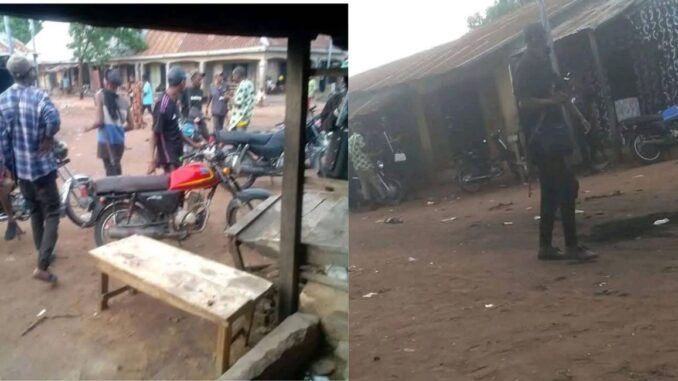News
US malaria funding cut may worsen Nigeria’s maternal mortality

By Francesca Hangeior
Nigeria’s already alarming maternal and infant mortality rates may worsen following an executive order signed by the United States President, Donald Trump, to halt funding support for malaria treatment in the country and other developing countries.
Trump, who was recently sworn in as the 47th US president, stopped the supply of medical aid related to malaria, and tuberculosis as well as the supplies of drugs and equipment meant for newborns in USAID-supported countries.
The US president halted foreign aid for 90 days with a likelihood of a longer pause in foreign assistance.
This executive order, however, made health experts express concerns that the halt in malaria funding by the Trump administration could lead to an increase in malaria-related deaths among pregnant women and children under the age of five in Nigeria.
They warned that the consequences of the funding cut would be devastating, particularly for vulnerable populations such as pregnant women and children.
Malaria is responsible for about 11 per cent of pregnancy-related deaths annually in Nigeria, according to the National Malaria Elimination Programme, an agency of the Federal Ministry of Health and Social Welfare.
According to the United Nations Children’s Fund, Nigeria accounts for nearly 20 per cent of global maternal deaths, with an estimated 576 maternal deaths per 100,000 live births.
UNICEF added that the country also has one of the highest infant mortality rates, with 69 deaths per 1,000 live births.
Similarly, the World Health Organisation reports that malaria is a leading cause of death in Nigeria, especially among pregnant women and children.
In 2023, WHO revealed that Nigeria accounted for 30.9 per cent of malaria deaths in the African region.
The global health agency noted that the disease is endemic in Nigeria, with the majority of the population at risk of infection.
The halt in malaria funding by the Trump administration experts fear could worsen the already dire situation.
PUNCH Healthwise reports that the funding previously provided through the US Government’s President’s Malaria Initiative, had been instrumental in reducing malaria-related deaths in Nigeria.
A 2024 report by PMI revealed that the U.S. president’s funding has contributed $914 million to Nigeria’s fight against malaria since 2011. This includes $73 million in 2023
In 2020, despite the constraints of COVID-19, PMI helped Nigeria provide 14.7 million treatment doses at the facility and community levels, 8.2 million of which were for pregnant women and children.
PMI distributed 7.1 million insecticide-treated mosquito nets, provided 7.2 million rapid test kits, and trained 9,300 health workers to properly diagnose and treat patients for early detection of the disease.
In 2023, the U.S. Agency for International Development, through PMI funding and programmes, delivered 13.4 million bed nets, 6 million fast-acting medicines, and 11.8 million Malaria Rapid Diagnostic Tests to clinics and communities in Nigeria.
Similarly, in November 2024, USAID committed $2.3 million to procure 4.8 million doses of life-saving malaria tablets from Swiss Pharma (Swipha) in a landmark partnership that will expand access to essential medicines in Nigeria and West Africa.
However, the plan to stop such funding has raised concerns and fear among experts, who argued that such could worsen the country’s already alarming maternal and infant mortality rates.
The experts, who spoke to our correspondent, warned that the funding cut would severely impact Nigeria’s ability to control malaria, particularly in rural areas where access to healthcare was limited.
A malaria researcher, Prof Chijioke Nwauche warned that the halt in malaria funding by the United States government could have a devastating impact on Nigeria’s fight against the disease.
Nwauche noted that the US had been a significant contributor to Nigeria’s malaria control efforts.
He stressed that the cut in funding could lead to a surge in malaria-related deaths, particularly among pregnant women and infants.
“Malaria is a major public health concern in Nigeria, and anything that affects our ability to control it will have a negative impact on our maternal and infant mortality rates,” Nwauche said.
The don noted that the Nigerian government needed to take urgent action to address the funding gap, by increasing domestic funding for malaria control programmes and exploring alternative sources of funding.
Nwauche also emphasised the need for the government to address the brain drain in the health sector, which has seen many medical professionals leave the country in search of better opportunities.
“We need to find a way to retain our health personnel, by providing them with better working conditions, training, and equipment,” he said.
He also called on the media to play a critical role in holding the government accountable for its actions and to ensure that the voices of Nigerians are heard.
“The media has a critical role to play in speaking truth to power, and in ensuring that the government is held accountable for its actions,” Nwauche said.
On his part, a consultant gynaecologist at the University of Lagos Teaching Hospital, Dr. Adeyemi Otunuya, stressed that without adequate funding, the country would see a surge in malaria-related deaths.
Otunuya explained that the funding cut would also impact the availability of insecticide-treated bed nets, which are a crucial tool in preventing malaria.
According to the maternal health expert, malaria is a major threat to women’s health in Nigeria, particularly during pregnancy.
The gynaecologist explained that malaria can affect women in several ways, including increasing the risk of miscarriage, stillbirth, and preterm labor.
“Malaria can also lead to anemia, which can increase the risk of maternal mortality,” he added.
The expert warned that the halt in malaria funding could worsen maternal mortality in Nigeria, particularly in rural areas where access to healthcare is limited.
“The funding cut will reduce the availability of insecticide-treated bed nets, which are a crucial tool in preventing malaria,” Otunuya noted.
The physician also stressed that the funding cut will impact the availability of antimalarial drugs, which are essential for treating malaria in pregnant women.
He urged the government to take immediate action to address the funding gap and ensure that pregnant women have access to the treatment they need.
News
Reps Tackle CBN, OAGF Over Missing Grants, Bailout Funds

According to him, such financial mishandling not only disrupts critical public services and projects but also results in major losses to the nation’s purse—resources that could have been channelled into crucial services and developmental efforts, as laid out in Section 14(2)(b) of the Constitution.
Speaker Abbas, thereafter setup a Special Committee to be chaired by Rep. Chinedu Martins to immediately launch a probe into the “Utilisation of take-off grants, bailout funds, and interventions allocated to MDAs, government institutions, and GOEs from 2015 to present.”
News
Abuja light rail project must be commissioned on May 29-Wike vows

The FCT Minister, Mr. Nyesom Wike, expressed satisfaction with the progress on the Abuja light rail project, reaffirming its May 29 delivery as sacrosanct.
He made these assurances after inspecting the ongoing construction of access roads to the train stations on Wednesday, from Metro Train Station in the Central Area to Nnamdi Azikiwe International Airport, Abuja.
Reassuring journalists accompanying him, the minister reiterated that President Bola Tinubu would commission the rail project on May 29 to mark his second year in office.
The visited stations were Wupa station near Idu and Bassanjiwa station near the airport.
“This is part of our routine inspection of ongoing projects to see the contractors’ progress,” Wike explained.
“We are working day and night to fulfill our promise to President Tinubu and FCT residents. By May, Mr. President will ride on the Metro line.”
News
Just in: Alleged Herdsmen Armed With AK-47 Rifles Take Over Communities In Benue State

Gunmen suspected to be Fulani herdsmen are currently invading some communities in the Ukum Local Government Area of Benue State.
According to sources, the herdsmen armed with AK-47 rifles stormed the community around 04:15pm on Thursday.
“Our lives are in danger this evening, armed Fulani herdsmen, about 600 in numbers have taken over our communities this evening,” a resident told SaharaReporters.
“They’re currently moving around towns in Ukum Local Government Area of Benue state. No security personnel at all, Governor Alia didn’t send security, they said operation will start soon once they (herders) have observed the place.”
The insecurity situation in Benue has been alarming in recent weeks with attacks from gunmen suspected to be herdsmen.
The media had reported that suspected herdsmen again unleashed terror in Benue State, attacking three communities in Otukpo Local Government Area (LGA) on Wednesday, just a day after 11 people were killed in a deadly raid on Otobi community.
The latest victims of the escalating violence were Emichi, Odudaje, and Okpamaju, communities that had previously suffered an attack in February, which left five people dead.
However, the renewed attack has created fear and mass displacement among residents, with women and children fleeing to safety.
Local sources say the death toll from the fresh attack remains unclear, but several casualties are feared.
-

 News8 hours ago
News8 hours agoBREAKING: Unknown gunmen reportedly storm Senator Natasha’s family residence
-

 News10 hours ago
News10 hours agoSnub story on removal of Rivers Sole Administrator, it’s FAKE-Chief Registrar
-

 News16 hours ago
News16 hours ago“How my father escaped assassination” – Bishop Oyedepo’s daughter
-

 News16 hours ago
News16 hours agoFG expresses sympathy for CBEX victims, urges a united effort to combat Ponzi schemes
-

 News10 hours ago
News10 hours agoSAD! Again, Alleged Herdsmen Attack Three Benue Communities
-

 Politics10 hours ago
Politics10 hours agoPDP govs are jokers, can’t stop coalition train, Atiku boasts
-

 News22 hours ago
News22 hours agoEl-Rufai labels Tinubu’s government ‘worst in Nigeria’s history’
-

 News17 hours ago
News17 hours agoWoman tragically lost her life after attempting to flee through glass door during alleged incident of domestic violence


















